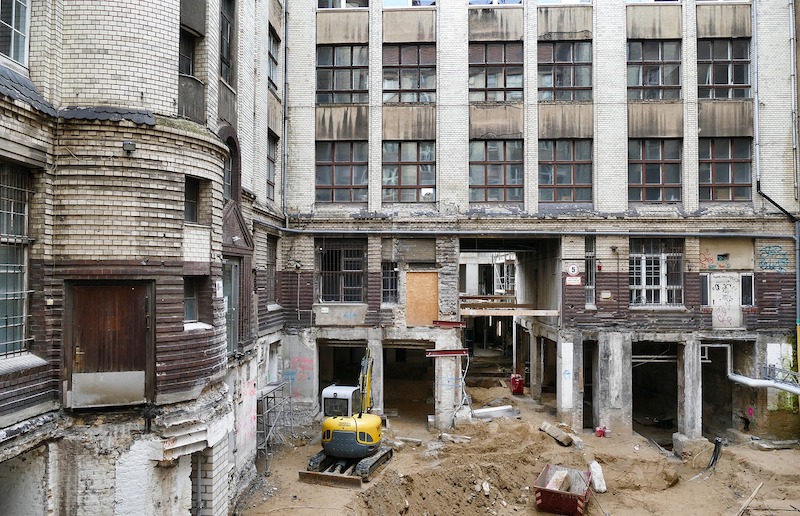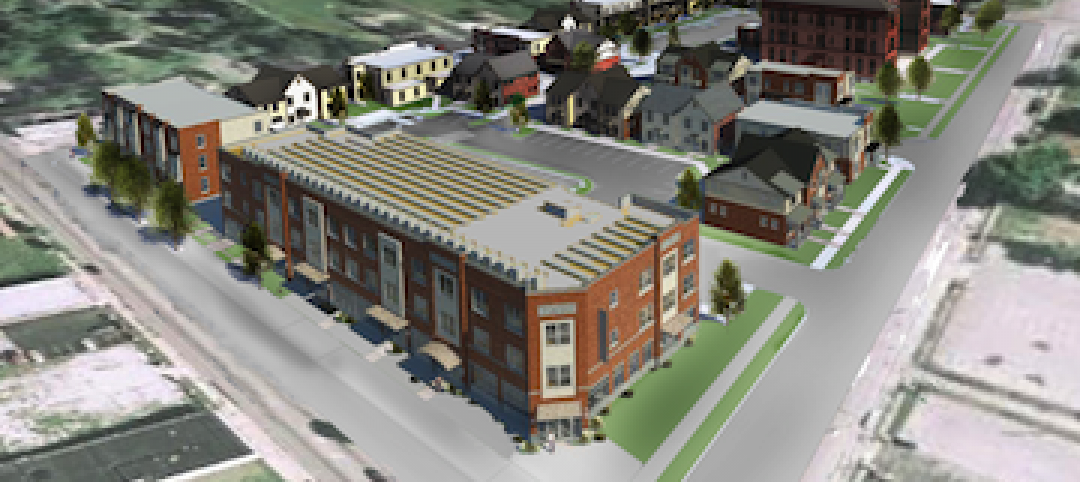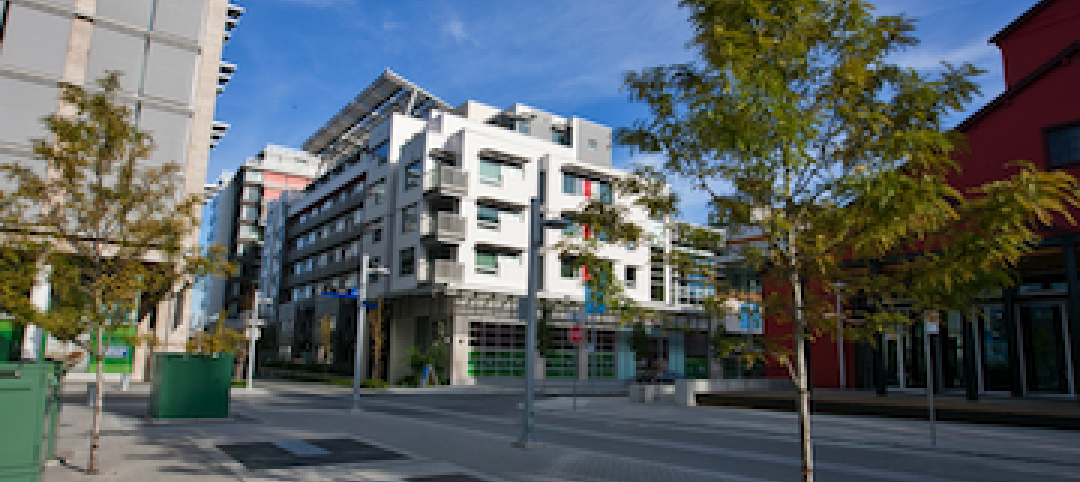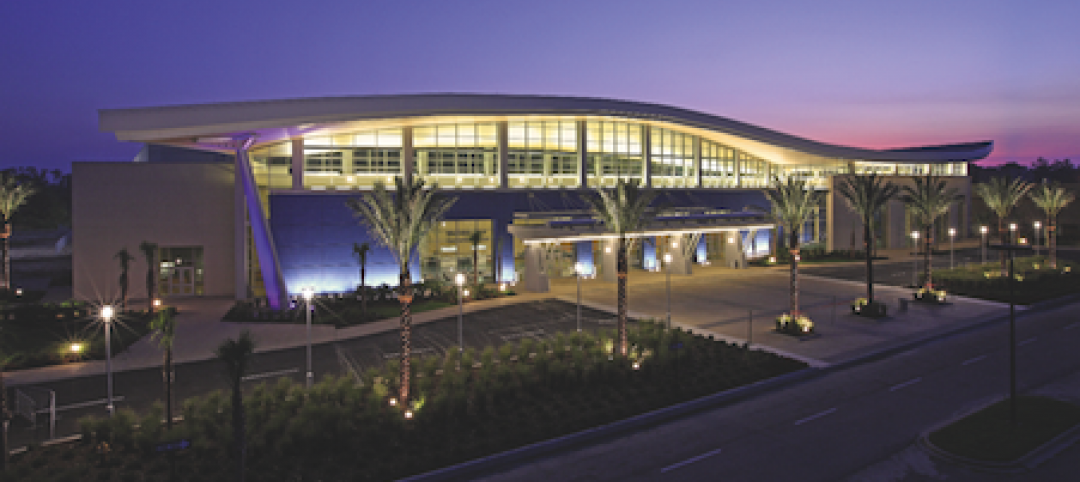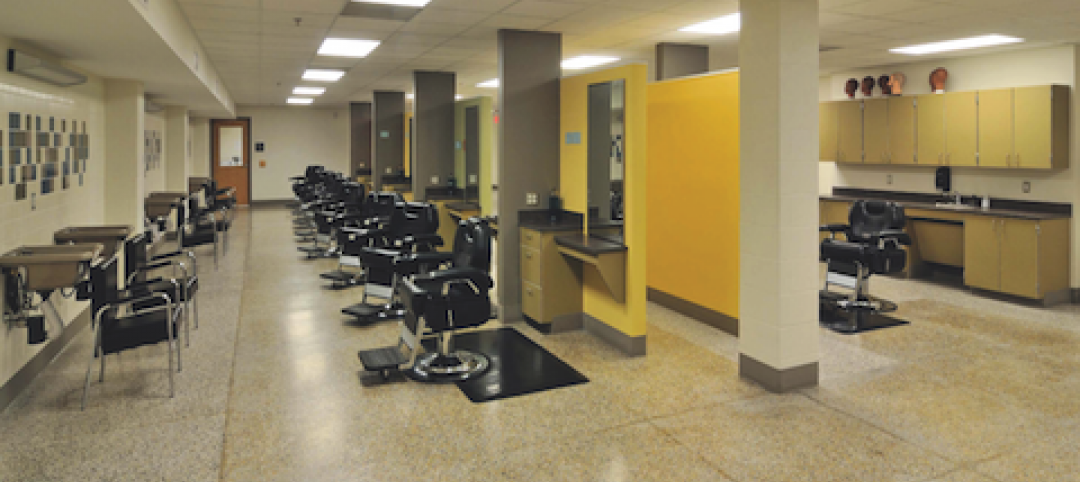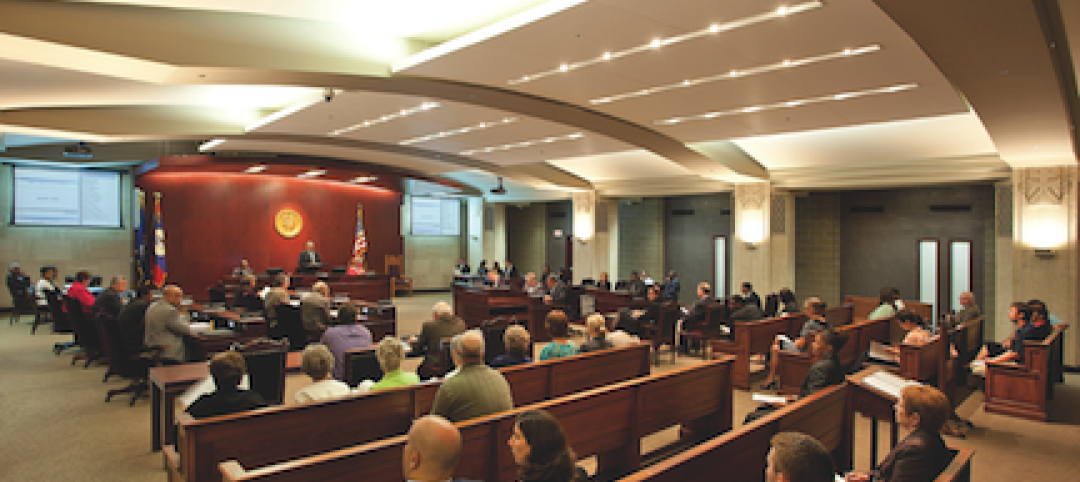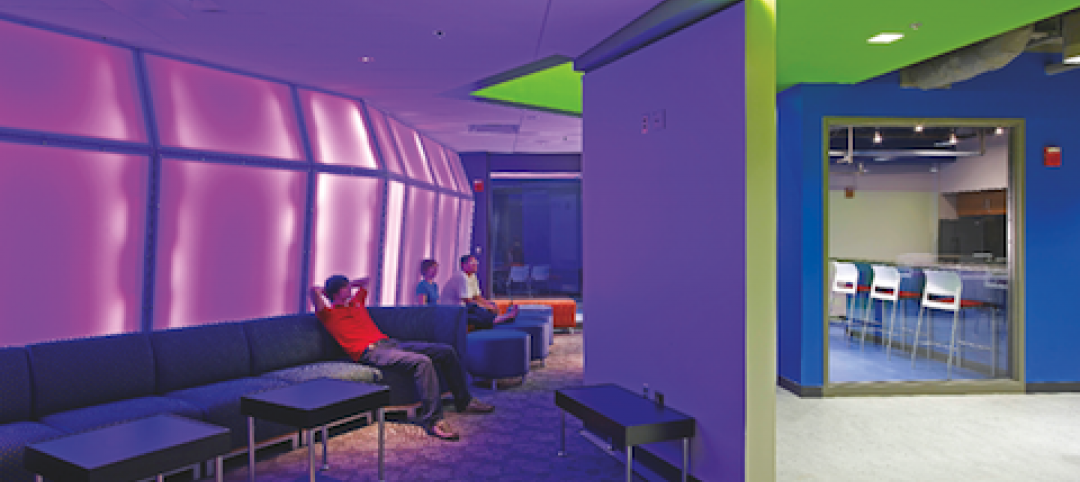For a market that receives little attention or fanfare, the U.S. reconstruction and renovation sector is the lifeblood for many of the nation’s architecture, engineering, and construction firms—large and small. From office fitouts to adaptive reuse to historic preservation to run-of-the-mill renovation work, more than $100 billion in construction spending flows into reconstruction projects each year.
For some perspective on the importance of this sector to the AEC market, we turn to the 2019 Giants 300 Report, BD+C’s annual ranking of the largest AEC firms in the country (BDCnetwork.com/Giants2019). Of the 486 companies that participated in the Giants report this year, 364 (74.9%) reported earning at least some design or construction revenue from reconstruction work in 2018. And more than a quarter (27.0%) of all reporting firms earned at least half of their total 2018 revenue from the reconstruction sector.
Then there are the specialists, like Clune Construction, Consigli Building Group, Hoffmann Architects, and Jensen Hughes, which garner three-quarters or more of their overall revenue from the reconstruction market (40 companies in all, or 8.2% of the Giants 300 reporting firms).
From a community impact perspective, few new construction sectors (outside of healthcare, perhaps) rival the reconstruction market, as evidenced by the 22 winning projects in our 36th annual Reconstruction Awards. When planned and executed properly, redevelopment projects not only save and reenergize dated or landmark structures, they can spark the revivification of entire neighborhoods and districts. Take, for example, the MGM Springfield development in Springfield, Mass. The city used this landmark casino project—it is the first full-service casino in Massachusetts—as a catalyst for a $960-million, 14-acre redevelopment in the heart of downtown. The project involved the restoration or reuse of several historic structures, including the relocation of the First Spiritualist Church and the adaptive reuse of the long-vacant State Armory building.
In Little Rock, Ark., an enterprising AE firm (Cromwell Architects Engineers) purchased the oldest remaining industrial building and turned it into The Paint Factory. The $7.9 million mixed-use redevelopment has been hugely successful since opening in March 2018, sparking some $75 million worth of new construction in the neighborhood.
There are numerous success stories among our 2019 Reconstruction Awards winners—from Linode’s new headquarters in a converted bank building in Philadelphia, to Springfield Technical Community College’s student services center in a military munitions manufacturing plant in Massachusetts. Check out these projects and more featued in the November 2019 issue of BD+C. Enjoy!
Related Stories
| Nov 1, 2010
Sustainable, mixed-income housing to revitalize community
The $41 million Arlington Grove mixed-use development in St. Louis is viewed as a major step in revitalizing the community. Developed by McCormack Baron Salazar with KAI Design & Build (architect, MEP, GC), the project will add 112 new and renovated mixed-income rental units (market rate, low-income, and public housing) totaling 162,000 sf, plus 5,000 sf of commercial/retail space.
| Nov 1, 2010
Vancouver’s former Olympic Village shoots for Gold
The first tenants of the Millennium Water development in Vancouver, B.C., were Olympic athletes competing in the 2010 Winter Games. Now the former Olympic Village, located on a 17-acre brownfield site, is being transformed into a residential neighborhood targeting LEED ND Gold. The buildings are expected to consume 30-70% less energy than comparable structures.
| Oct 21, 2010
GSA confirms new LEED Gold requirement
The General Services Administration has increased its sustainability requirements and now mandates LEED Gold for its projects.
| Oct 13, 2010
Editorial
The AEC industry shares a widespread obsession with the new. New is fresh. New is youthful. New is cool. But “old” or “slightly used” can be financially profitable and professionally rewarding, too.
| Oct 13, 2010
Biloxi’s convention center bigger, better after Katrina
The Mississippi Coast Coliseum and Convention Center in Biloxi is once again open for business following a renovation and expansion necessitated by Hurricane Katrina.
| Oct 12, 2010
Holton Career and Resource Center, Durham, N.C.
27th Annual Reconstruction Awards—Special Recognition. Early in the current decade, violence within the community of Northeast Central Durham, N.C., escalated to the point where school safety officers at Holton Junior High School feared for their own safety. The school eventually closed and the property sat vacant for five years.
| Oct 12, 2010
Guardian Building, Detroit, Mich.
27th Annual Reconstruction Awards—Special Recognition. The relocation and consolidation of hundreds of employees from seven departments of Wayne County, Mich., into the historic Guardian Building in downtown Detroit is a refreshing tale of smart government planning and clever financial management that will benefit taxpayers in the economically distressed region for years to come.
| Oct 12, 2010
Richmond CenterStage, Richmond, Va.
27th Annual Reconstruction Awards—Bronze Award. The Richmond CenterStage opened in 1928 in the Virginia capital as a grand movie palace named Loew’s Theatre. It was reinvented in 1983 as a performing arts center known as Carpenter Theatre and hobbled along until 2004, when the crumbling venue was mercifully shuttered.
| Oct 12, 2010
University of Toledo, Memorial Field House
27th Annual Reconstruction Awards—Silver Award. Memorial Field House, once the lovely Collegiate Gothic (ca. 1933) centerpiece (along with neighboring University Hall) of the University of Toledo campus, took its share of abuse after a new athletic arena made it redundant, in 1976. The ultimate insult occurred when the ROTC used it as a paintball venue.
| Oct 12, 2010
Owen Hall, Michigan State University, East Lansing, Mich.
27th Annual Reconstruction Awards—Silver Award. Officials at Michigan State University’s East Lansing Campus were concerned that Owen Hall, a mid-20th-century residence facility, was no longer attracting much interest from its target audience, graduate and international students.


